We would like to invite you to march with us as part of the internationalist bloc this first of May. If you are aligned with anti-capitalist, anti-caste, anti-patriarchy, and anti-fascist politics, and have some connection to South Asia (you don’t have to identify as south Asian), join us!
The demo will begin at 1700 at Karl Marx Str/Hermannplatz and will end at 2100 at Oranienplatz near Kreuzberg.
The following is our statement:
We are proud to join our comrades who will come together on May 1 in Berlin to celebrate their imagination of a new world that is democratic, decolonised, just, solidaristic, socialist and egalitarian.
We are inspired by their struggle for socio-economic justice and fair working conditions. We stand together with them to resist the use of pandemic measures to transfer even more wealth from the poor to the rich. We also resist the continued exploitation of workers and communities in the global south through the forces of exploitative global capital.
During the COVID lockdown, the governments of India and many of its regions introduced, without any warning, the harshest lockdown in the world, combined with the weakest social security net. Workers all over India were left stranded without work, food, or shelter. Tens of thousands of them travelled the breadth of the country, sometimes by foot, to return to their homes.
The governments chose exactly this time to attack the working class with anti-worker changes to its labour laws, including the introduction of the 12-hour working day, the strengthening of the system of contract employment, and the weakening of trade unions. Labour rights won by workers over a century and a half were wiped away.
The forces of global capital cheered these developments on as the government of India remained focused on its performance on the World Bank’s Ease of Doing Business Index, to the exclusion of all else including its poor performances on indices of hunger and democracy. Global brands such as H&M cancelled orders from garment factories in India, Pakistan, and Bangladesh, leading to job cuts and unpaid wages for thousands of women workers. Corporations from the global north looked on silently as India’s women were forced to retreat from the workforce in large numbers, knowing fully well that they would profit from their increased vulnerability.
This vulnerability will be further exacerbated by the new education policy introduced by the Modi government during the pandemic year, which sets the tone for the worsening inequality that is to come in India’s future. The new education policy aids neoliberalisation of the public school and university sector to follow the WTO diktat of commodifying education. The new policy abandons small schools in rural areas with mid-day meals in favour of large private school with centralised facilities that are to share resources with public schools; increases schooling years from 12 to 15; undermines research by reducing funding for PhD students and funding for public universities in general. Through board exams at 8th grade, common entrance tests, exit options for undergraduate programs and Hindi imposition, the fascist Brahmin-Bania government is actively encouraging students from Other Backward Class (OBC), Dalits and Adivasis to drop out and take up their caste-based occupation. Such changes are aimed at making India fertile ground for private foreign universities catering to the upper echelons of Indian society, encourages school drop-out rates, creates an army of reserves (in the form of child labour and gig economy) forced to serve the interests of foreign and domestic capital in order to make ends meet and to rigidify the caste-class structure of the Indian society to maintain Brahmin-Bania hegemony.
For decades now, global value chains have profited from the vulnerability of India’s poor, and especially from women workers who belong to the oppressed castes, who have been employed through non-regular work arrangements where they receive lower pay, less job security and lower social protection. They are also the workers who are disproportionately impoverished by the pandemic. Women workers face a double burden on as they faced increased unemployment, precarity, poor working conditions, combined with an increased burden of domestic and care work during the pandemic and lockdown. This was combined with an increase in domestic violence, and the deprioritisation of their sexual and reproductive health as resources were diverted away.
In making changes to labour laws during the pandemic, the government also did not extend to these workers, any significant social security cover. In Germany and in other parts of Europe, national governments chose to turn a blind eye to the human rights violations of their corporations in overseas in India and other nations of the global south.
The government of India also chose this moment to legislate to reduce the farming community to corporate vassals. For decades now, international financial institutions and the northern nations have advocated for a greater role for the market and the private sector in India’s agricultural value chains. Despite clear evidence that this would lead to the corporate and financial enslavement of the farmers, the government passed three laws deregulating contract farming, lifting restrictions on food transport and storage, and allowing trade in agricultural products outside the regulated markets for agricultural produce, while not investing in the governance of these regulated public markets. These laws will effectively nullify the Public Distribution System operating in many states that provides food security to millions of people and which has been effective in diluting the feudal caste-class structure of the Indian Union.
The government of India has also announced its intention to fast track the privatisation of central public sector utilities in crucial sectors of the economy by selling them to domestic and foreign corporations. Even as it propagates the slogan of self-reliance, the government moves forward to make the country dependent on imperialist powers.
This government is also moving determinedly ahead with the settler colonization of Kashmir, laying open the entire territory of the region to be exploited by Bania corporations like Ambani and Adani. Murders, rapes, disappearances and violence continue to be visited upon Kashmiris by the armed forces of India, operating under cover of the Armed Forces Special Powers Act (AFSPA). In these circumstances, self-determination by the Kashmiri people remains difficult.
While it actively participates in the exploitation of India’s farmers, workers, and its public sector, the government led by Narendra Modi has, under the eyes of the international community, pushed ahead more vigorously than ever before with its Brahmin-Bania hegemonical agenda to further oppress Muslims, Dalits, Adivasis, OBC, LGBTQIA communities, Dravidians and women. It continues to embolden cow protection vigilantes, lynchings of Muslim and Dalit men, online armies of hatespewing trolls, and fake news farms. It is trying to get rid of the Prevention of Atrocities Act which ensures action against violence perpetrated on Dalits and Adivasis and eliminate the right to reservation (affirmative action) for OBC and SC/ST communities. It has overseen the weakening of India’s independent institutions – including the judiciary, the election commissions, the central bank, universities, and the information commissions.
Further, at this moment of the greatest need for international solidarity, the rich nations have waged war on the bodies of working class people in the global south by deprioritising their right to health. They have chosen to enforce patent rights on COVID vaccines, and encourage the creation of vaccine monopolies by pharmaceutical companies in the global north.
On this International Day of Worker Solidarity, we stand firm against the historic attack on the democratic, social, and trade union rights of workers, the livelihoods of farmers, and the health of the working poor. We join all progressive voices in a quest to co-create a more just world by radically dismantling the current economic system, and creating one where justice, dignity and equality for all prevails.
Jai Bhim! Long live Periyar! Inquilab Zindabad.
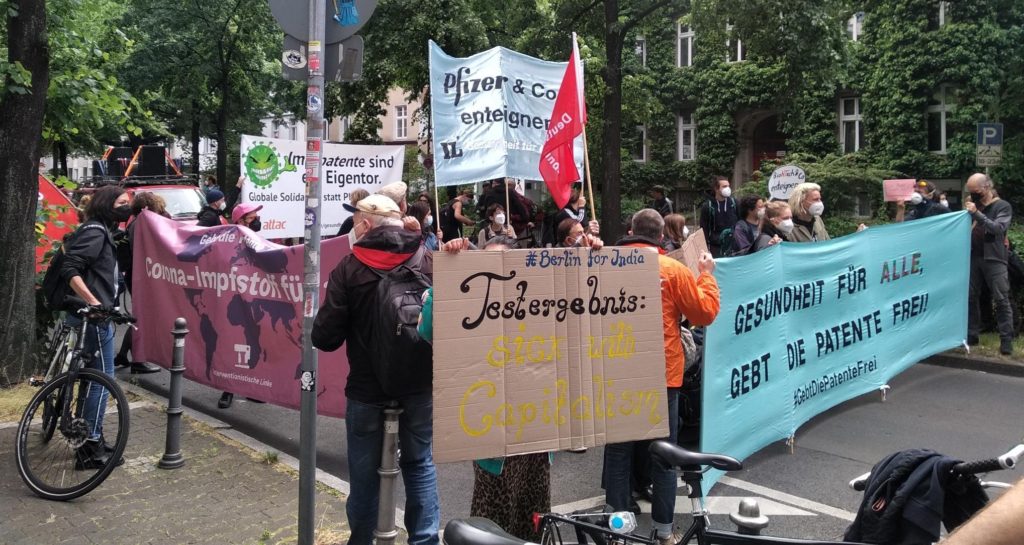
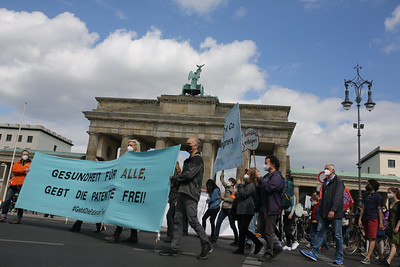
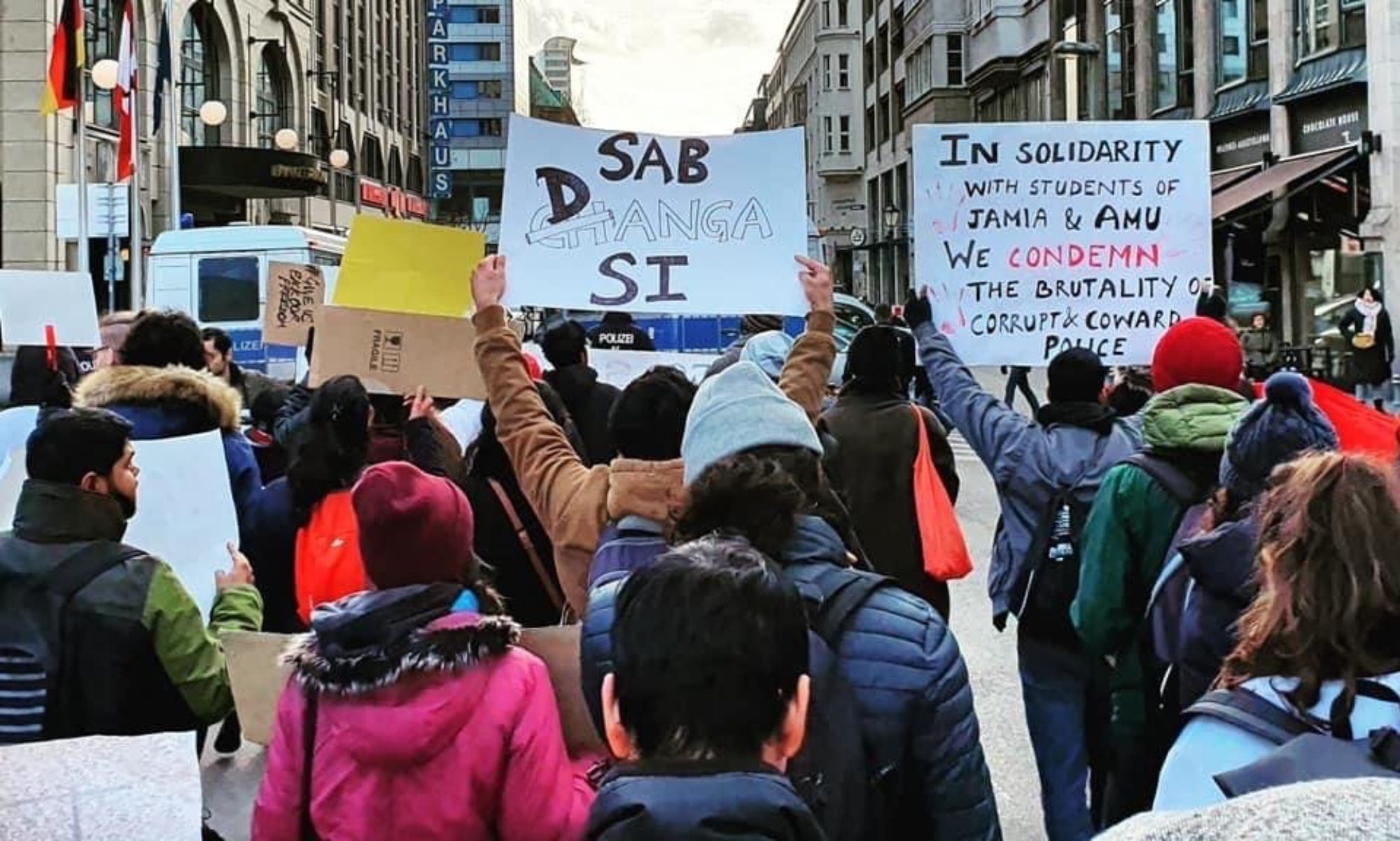
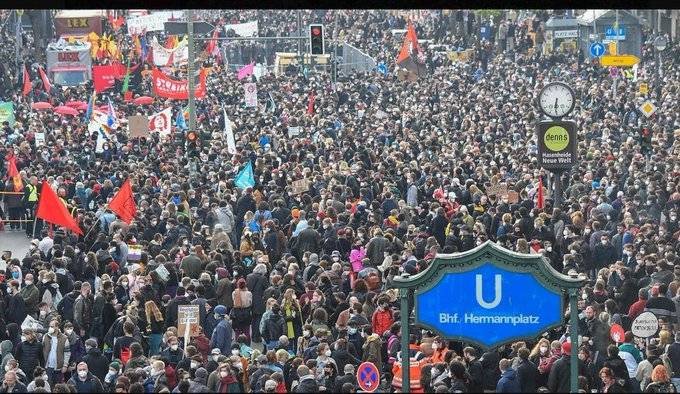
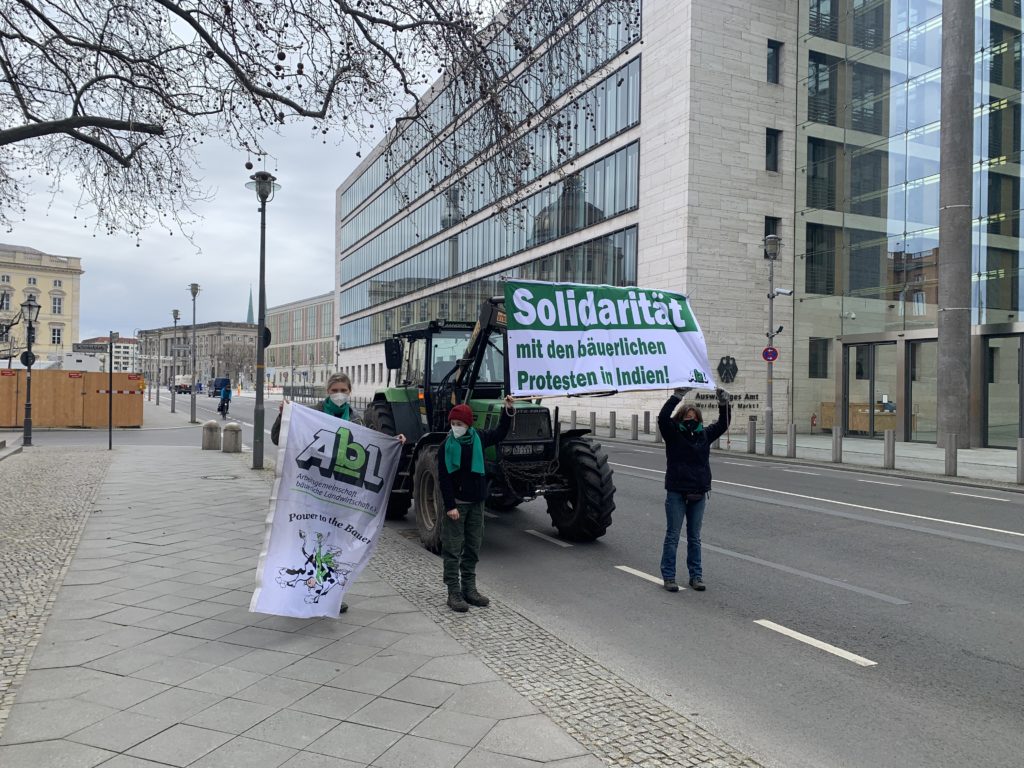
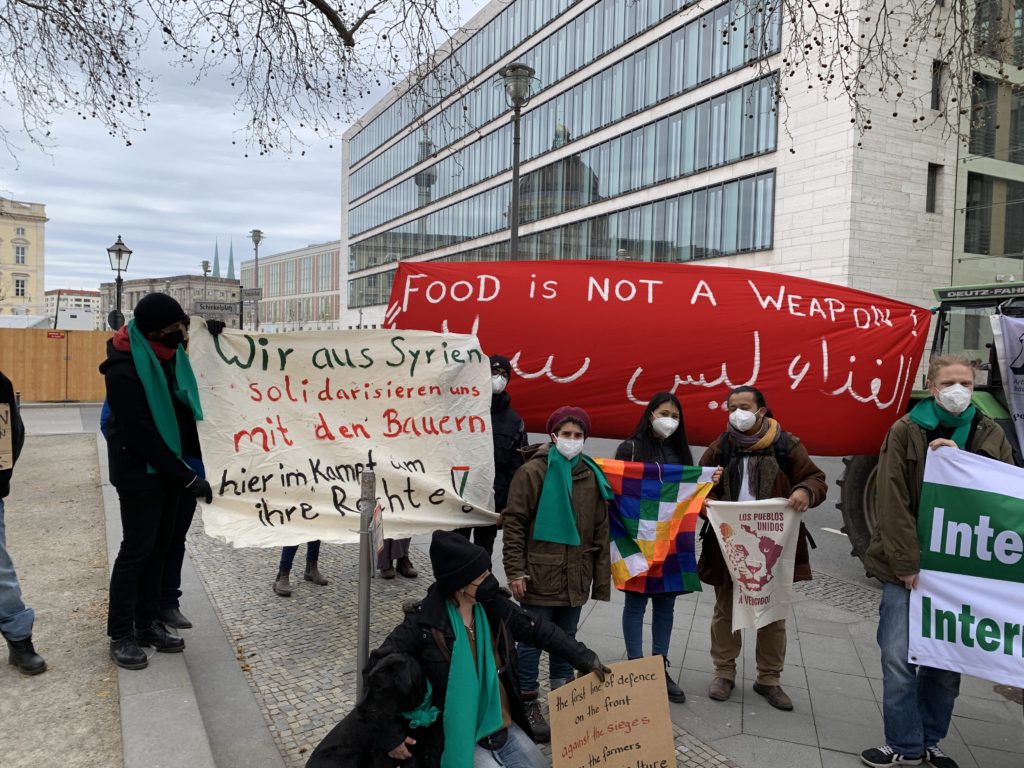 The first law attacks mandis, which are the country’s public agricultural markets and a meeting point between farmers and consumers. Mandis assure that farmers are rightfully compensated for their products by ensuring a minimum support price. Previously, the state governments could levy taxes on produce sold outside the mandis. The Farmers’ Produce Trade and Commerce (Promotion and Facilitation) Act, 2020 prohibits the levy of such taxes. It further enables private companies to engage with farmers outside the safety of the mandis and does nothing to improve efficiency the current markets. It also opens the door to the eventual removal of the minimum support price which guarantee a proper income for farmers and affordable nutrition for India’s poor.
The first law attacks mandis, which are the country’s public agricultural markets and a meeting point between farmers and consumers. Mandis assure that farmers are rightfully compensated for their products by ensuring a minimum support price. Previously, the state governments could levy taxes on produce sold outside the mandis. The Farmers’ Produce Trade and Commerce (Promotion and Facilitation) Act, 2020 prohibits the levy of such taxes. It further enables private companies to engage with farmers outside the safety of the mandis and does nothing to improve efficiency the current markets. It also opens the door to the eventual removal of the minimum support price which guarantee a proper income for farmers and affordable nutrition for India’s poor.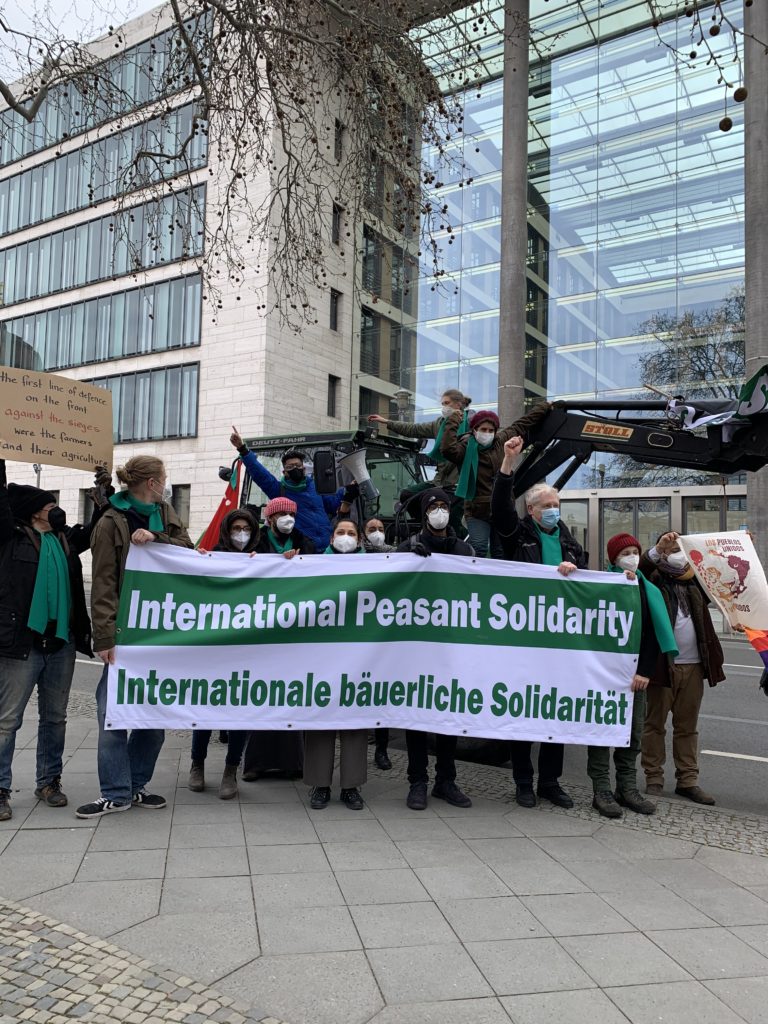 Now, the socio-political context concerns the tribal and Dalit farm labourers who work on agricultural farms of those who own the land and come from upper caste backgrounds. The latest census of 2011 divides farmers into the 2 categories of cultivators and labourers. According to the census 71% of Dalit farmers are labourers and not cultivators as opposed to national average of 47.3% of farmers being landless labourers. It also shows that agriculture labour has been increased by 37 million more people taking up farm labour in the past 10 years. Agrarian crisis is evident when the data shows that while number of farmers have dipped by 3.8% the number of labourers has increased. These landless farmers have no right of their own and majority are from Dalit or tribal backgrounds. Out of 263 million people engaged in agriculture, almost half of them are labourers, a trend that has not been seen in the past 40 years. Around 70% labourers are in debt pushing them to extreme measures like suicide. Last year more than 40k farmers committed suicide and majority of these farmers came from disenfranchised backgrounds and those that will be doubly impacted by the continued implementation of these 3 new acts. Dalit farm activists such as Nodeep Kaur and Shiv Kumar who have stood with farmers in this protest and forwarded the movement have had to face the brunt of police brutality despite bringing to the fore important issues of inequality within the farming community in India and Indian society as a whole. It is critical to note that Dalits and Tribal farm labourers have more at stake than others and will be at the losing end twice over if these neoliberal draconian laws are to stay.
Now, the socio-political context concerns the tribal and Dalit farm labourers who work on agricultural farms of those who own the land and come from upper caste backgrounds. The latest census of 2011 divides farmers into the 2 categories of cultivators and labourers. According to the census 71% of Dalit farmers are labourers and not cultivators as opposed to national average of 47.3% of farmers being landless labourers. It also shows that agriculture labour has been increased by 37 million more people taking up farm labour in the past 10 years. Agrarian crisis is evident when the data shows that while number of farmers have dipped by 3.8% the number of labourers has increased. These landless farmers have no right of their own and majority are from Dalit or tribal backgrounds. Out of 263 million people engaged in agriculture, almost half of them are labourers, a trend that has not been seen in the past 40 years. Around 70% labourers are in debt pushing them to extreme measures like suicide. Last year more than 40k farmers committed suicide and majority of these farmers came from disenfranchised backgrounds and those that will be doubly impacted by the continued implementation of these 3 new acts. Dalit farm activists such as Nodeep Kaur and Shiv Kumar who have stood with farmers in this protest and forwarded the movement have had to face the brunt of police brutality despite bringing to the fore important issues of inequality within the farming community in India and Indian society as a whole. It is critical to note that Dalits and Tribal farm labourers have more at stake than others and will be at the losing end twice over if these neoliberal draconian laws are to stay. 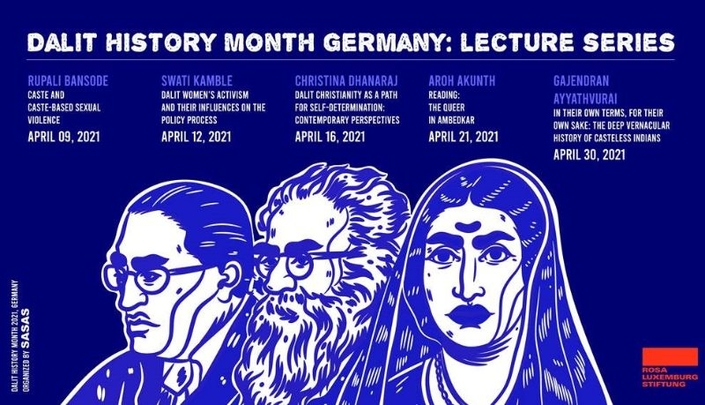
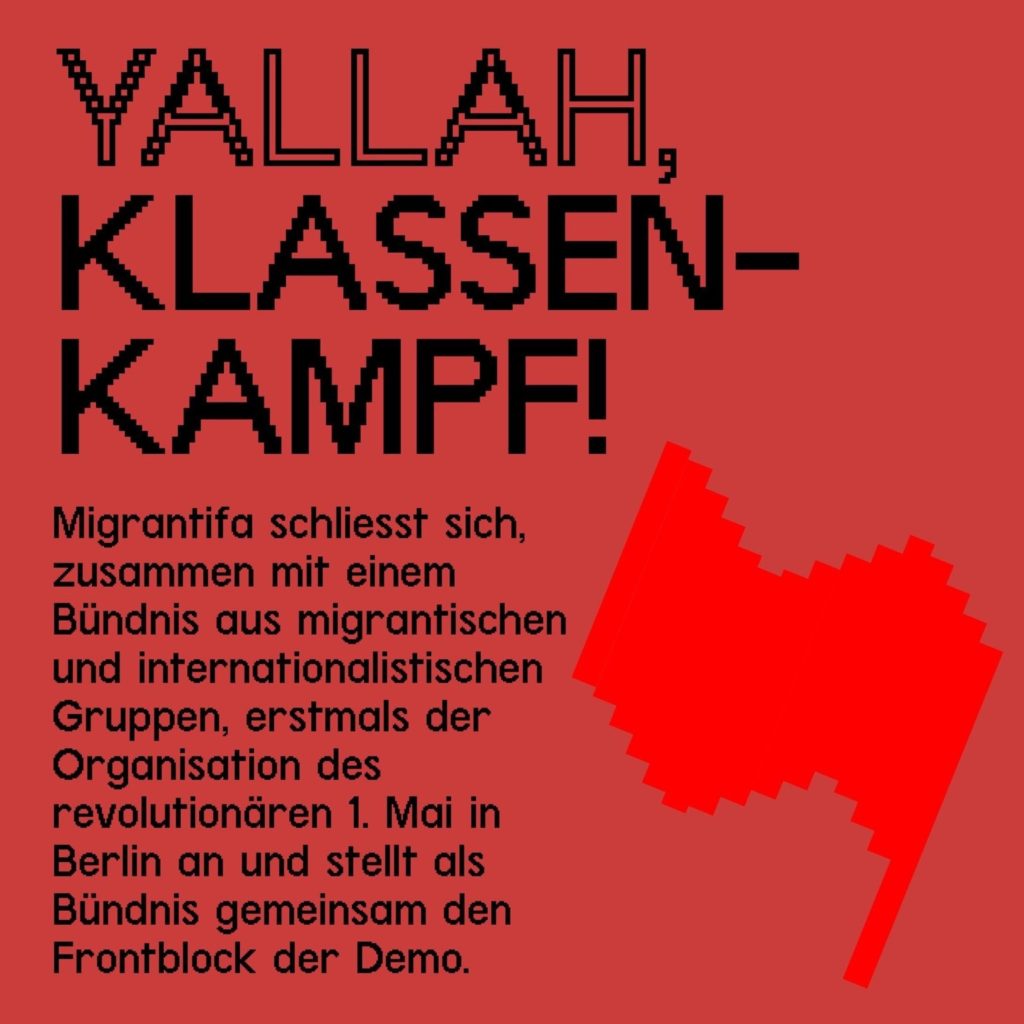 The ruling classes probably thought they were being very clever when they tried to co-opt our term “solidarity” at the beginning of the pandemic early last year.
The ruling classes probably thought they were being very clever when they tried to co-opt our term “solidarity” at the beginning of the pandemic early last year.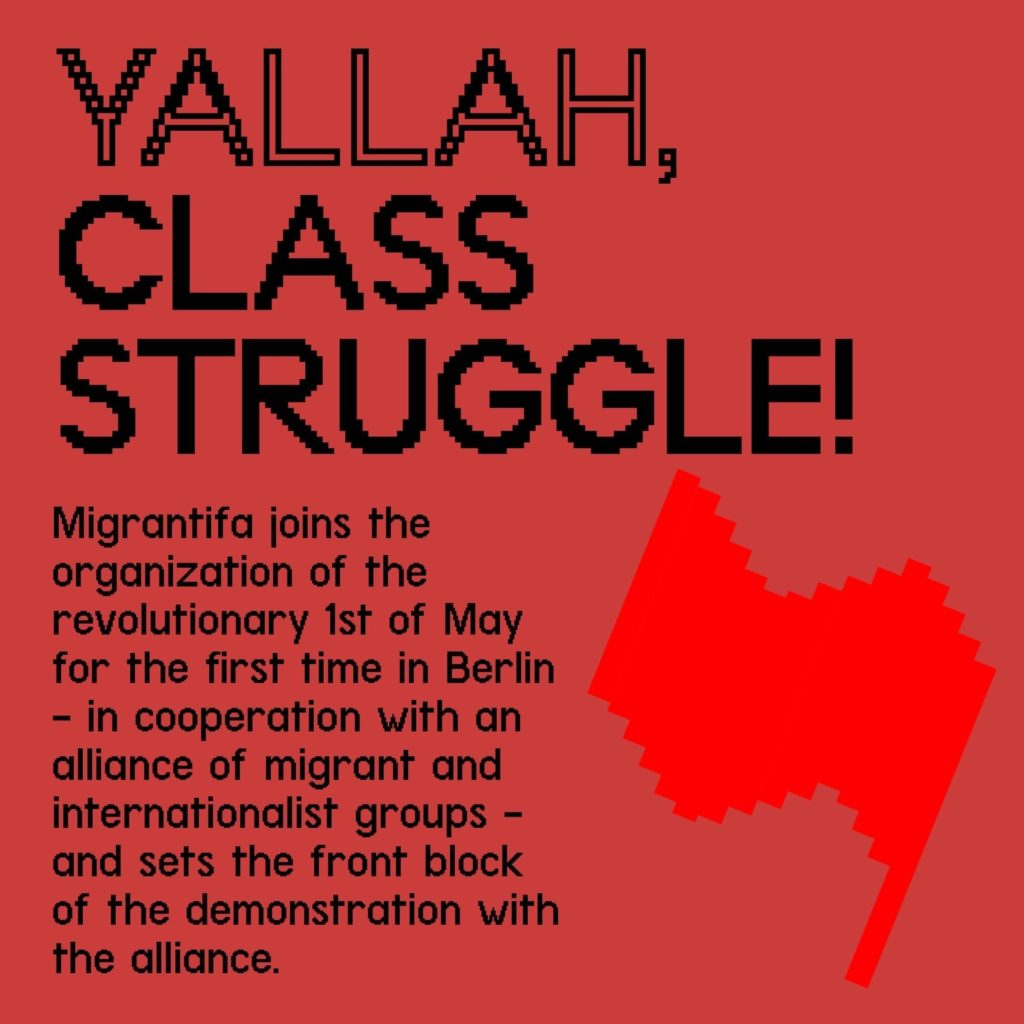
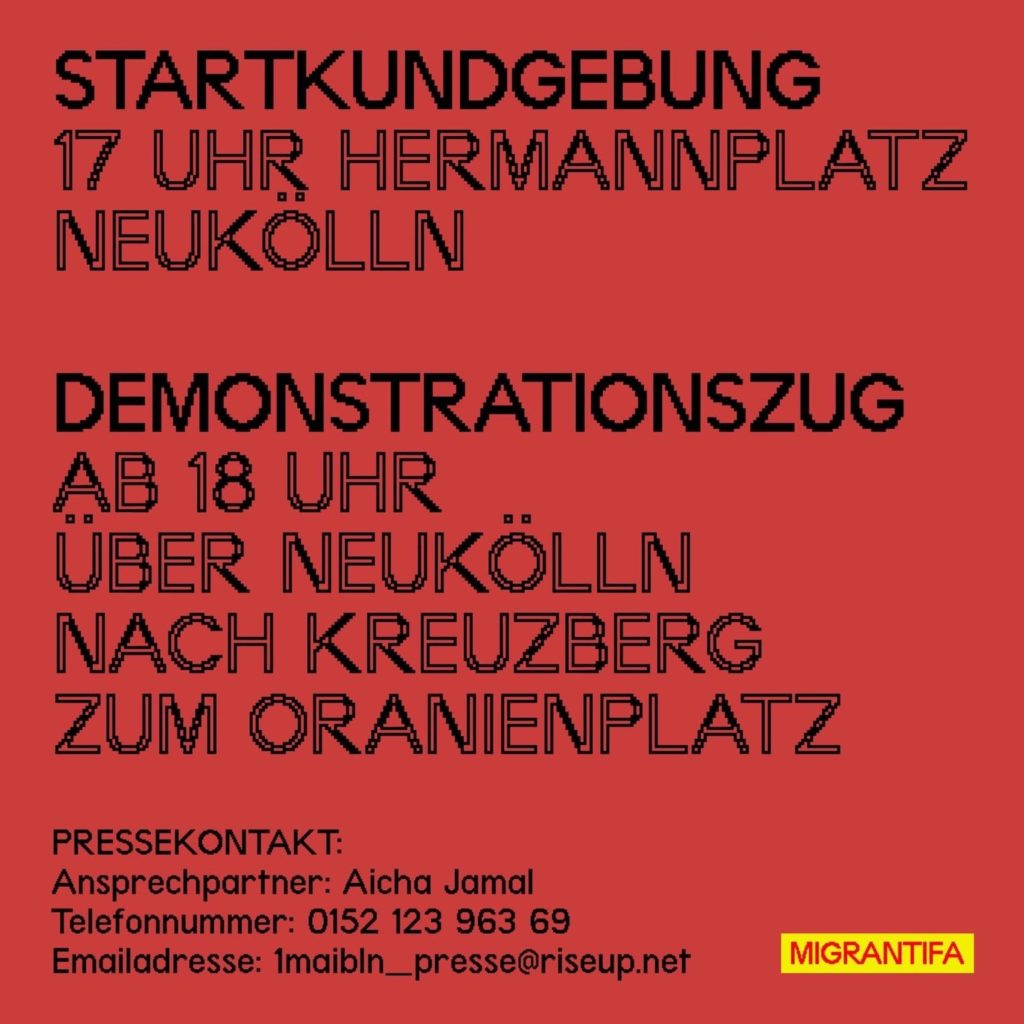 The fact that the rulers here, from their villas in Grunewald and their 240sqm lofts in Mitte, can lead their shitty liberal life and talk about responsibility is only possible because of the over-exploitation of workers. This is especially true for the workforce of women in the Global South and migrant women here in the imperialist centre. Whether in industry, carework or household work: the prosperity of Germany and Western Europe is created off our backs – the backs of workers and the exploited here and around the world.
The fact that the rulers here, from their villas in Grunewald and their 240sqm lofts in Mitte, can lead their shitty liberal life and talk about responsibility is only possible because of the over-exploitation of workers. This is especially true for the workforce of women in the Global South and migrant women here in the imperialist centre. Whether in industry, carework or household work: the prosperity of Germany and Western Europe is created off our backs – the backs of workers and the exploited here and around the world. And that’s why we also know what solidarity means; and to whom it belongs! We invite you to set an example together with us on the 1st of May and to continue the tradition of the international and revolutionary struggles of our ancestors and predecessors!
And that’s why we also know what solidarity means; and to whom it belongs! We invite you to set an example together with us on the 1st of May and to continue the tradition of the international and revolutionary struggles of our ancestors and predecessors!